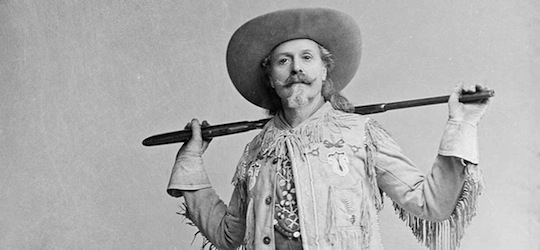William F. Cody’s early life—and his later celebrity based on it—took place largely within Kansas specifically and the Great Plains generally. Much of his earliest autobiography written in 1879 contains important historical content concerning the region’s growth and development. Though they do not appear explicitly in the autobiography, two landmark 1862 Congressional acts, especially the Pacific Railroad Act and the Homestead Act, set into motion and fundamentally shaped Cody’s Great Plains experience. Understanding the changing plains atmosphere as a result of the 1862 acts provides important context to Cody’s life at the time in which he became the legendary character of Buffalo Bill.
Cody’s experiences in Kansas in the mid to late 1860s were connected to larger historical trends in transportation development, town building, buffalo hunting, and white American conflict with American Indians wrought by the aforementioned legislation. He tried to build Rome, Kansas as the next great town of the West, but the railroad favored another nearby town for a depot and round house, which doomed this town-building venture. The ecology of central Kansas sustained an immense bison population and as a contracted buffalo hunter for the Kansas Pacific Railroad, Cody engaged in killing thousands of buffalo to provide meat for railroad workers. In this capacity he earned the nickname “Buffalo Bill” and became part of a trend of professional bison destruction. Large-scale buffalo killing and railroad construction also led to increased conflict with Native American tribes. Cody served as an Indian scout for the U.S. Army in the Plains Indian Wars and helped launch offensives against native groups to remove them from the path of “American progress.” The transformative laws of 1862 provide a window through which to see large historical trends that Cody later put on display for the masses in the Wild West and facilitate a better understanding of the multiplicity of Great Plains world in which he lived.
—–
“Becoming Buffalo Bill: William F. Cody and the Transformative Effects of the 1862 Railroad and Homestead Acts on the Kansas Great Plains Experience.” 1862-2012: The Making of the Great Plains 38th Interdisciplinary Symposium, Center for Great Plains Studies, University of Nebraska-Lincoln, March 28-30, 2012. Brent Rogers, University of Nebraska-Lincoln.
